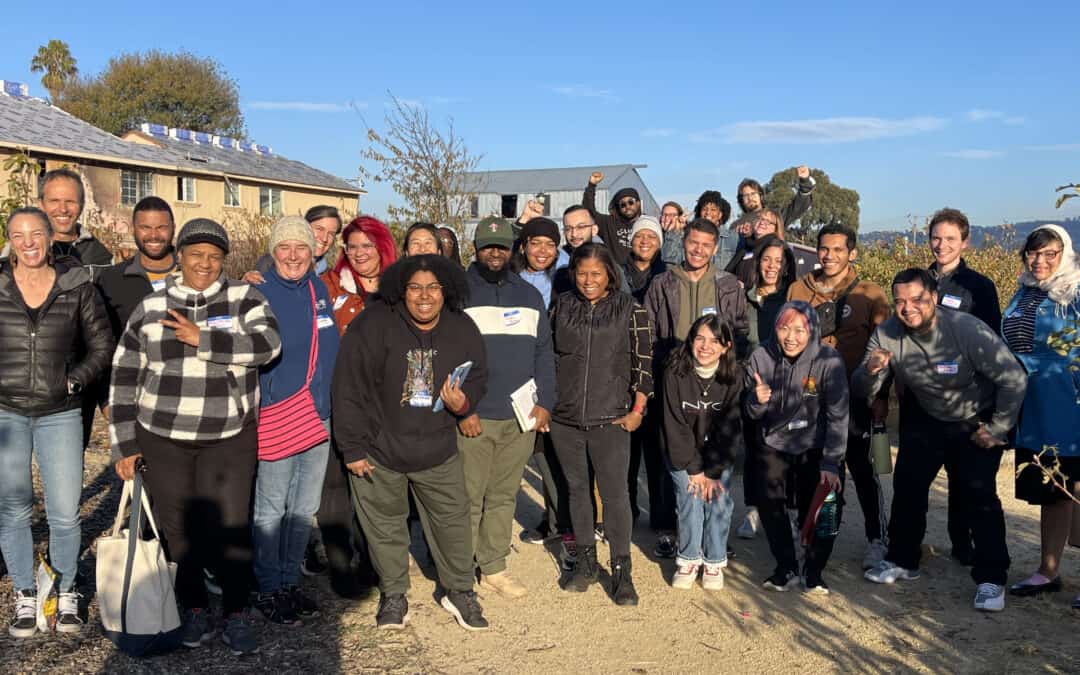Here at People’s Action Institute, training is our foundation. These are not just nice words - this is our commitment. If we have any hope to transform society into a place where everyone finds a home and where they can survive and thrive, it’s because someone, somewhere, invested time and energy in each of us so we could learn how to organize towards these goals. This is what People’s Action Institute trainers do every day, with discipline and focus.
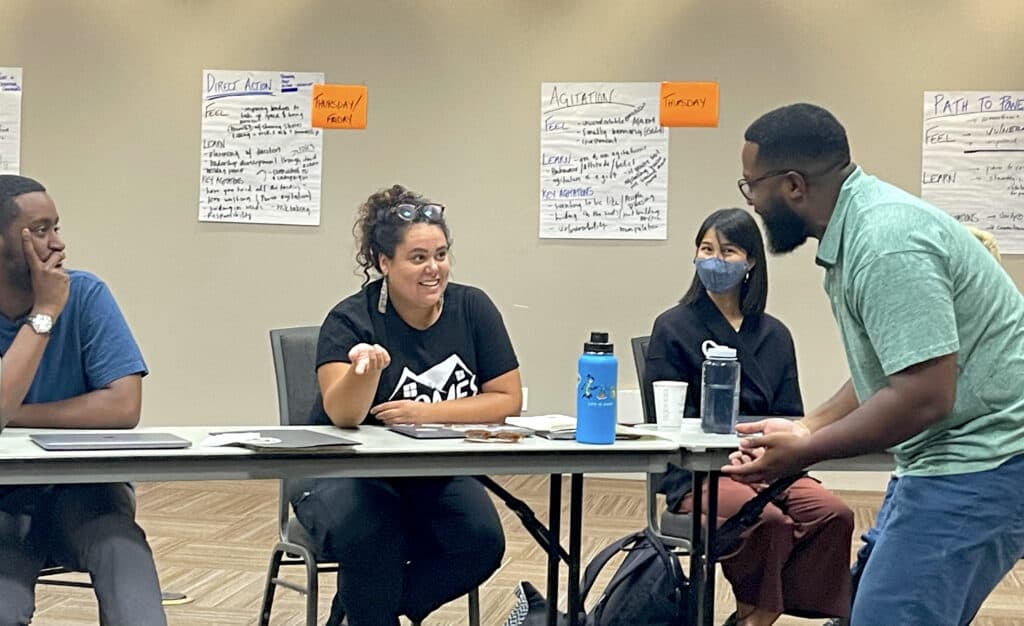
Training is a vital part of how we grow and evolve as individuals and as a movement. Someone lit a fire in us, so now we pass it on. This is why People’s Action Institute is expanding and investing in our training program to share the sacred craft of organizing as far and wide as we can.
We want to share with every one of our leaders, in all of our 40 groups in 29 states, and with our partners in the movement for social justice, all that we have learned over the last 50 years to be the best practices of community organizing. This is truly the foundation of our Organizing Revival.
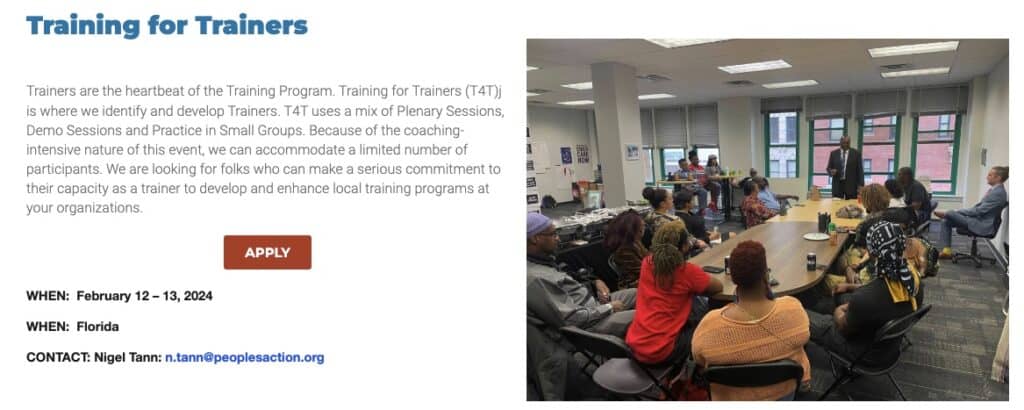
I’ve thought a lot about this since August, when I participated in our “Training For Trainers” or “T4T” course in Minneapolis. This is the culmination of People’s Action Institute’s training arc, which starts with the Fundamentals of Organizing, Weeklong Leadership Training, Base Building & Campaigns Boot Camp, and Deep Canvassing. Over five decades, we’ve trained thousands of organizers in these techniques.
This wasn’t my first People’s Action Institute training - it was my third. My first was in 2000, soon after the first time a community organizer for Sunflower Community Action knocked on my door in Wichita, Kansas. The second was in 2010, after I became a full-time organizer for our national network. So I have some perspective.
In 2000, I didn’t really know what I was walking into: I was a young mother of three, deep in the conservative culture of my local Christian and immigrant community. Yet I was ready for change. While I knew the powerful sense of fellowship created by the Latina women I invited into my home for Friday-night Bible studies, I knew we also felt powerless to address problems in our community when landlords or city officials didn’t treat us right. I knew there had to be more we could do than just pray.
My first training was led by Shel Trapp, one of the founders of People’s Action. Trapp had been trained by the legendary Chicago organizer Saul Alinsky, and schooled by Alinsky in gruff and sometimes confrontational techniques like “agitation.”
“What do you want to get out of this training?” Shel asked me and the other 15 or so participants, getting up in our faces.
”I want to be bold,” I told him.
I’m not sure why I said that. Because “bold” couldn’t have been farther from my personality at the time. But I did, and Shel heard me. And Shel’s trainings did give me a new sense of possibility for myself and for my community, along with the fundamental tools I needed to go out and boldly create change with my neighbors.
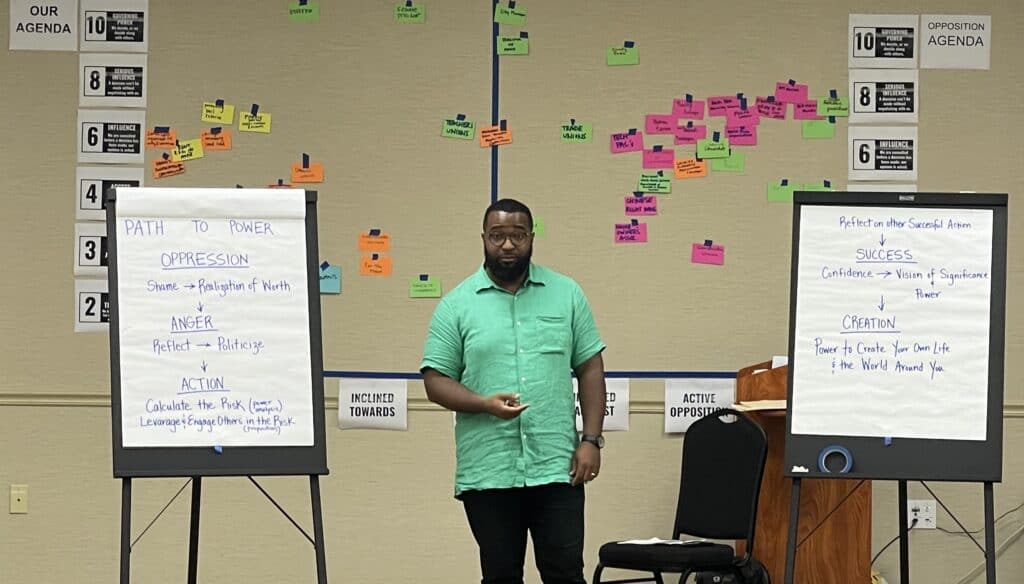
Ten years later, in 2010, things were different: I had become a full-time organizer for our national network, the very first dedicated to immigrant and workers’ rights. And we were different, too. No longer were aspiring organizers mostly white men, but there were people of color and women in the room.
We all appreciated Shel’s hard-earned wisdom and skills, but there were elements of the Alinsky style we took issue with. In particular, we challenged an old-fashioned approach that discounted race and gender. We knew, from our own experience, that this approach and our organizations had to evolve so they could include all of us.
We were committed to achieving this change, and this is what we have done.
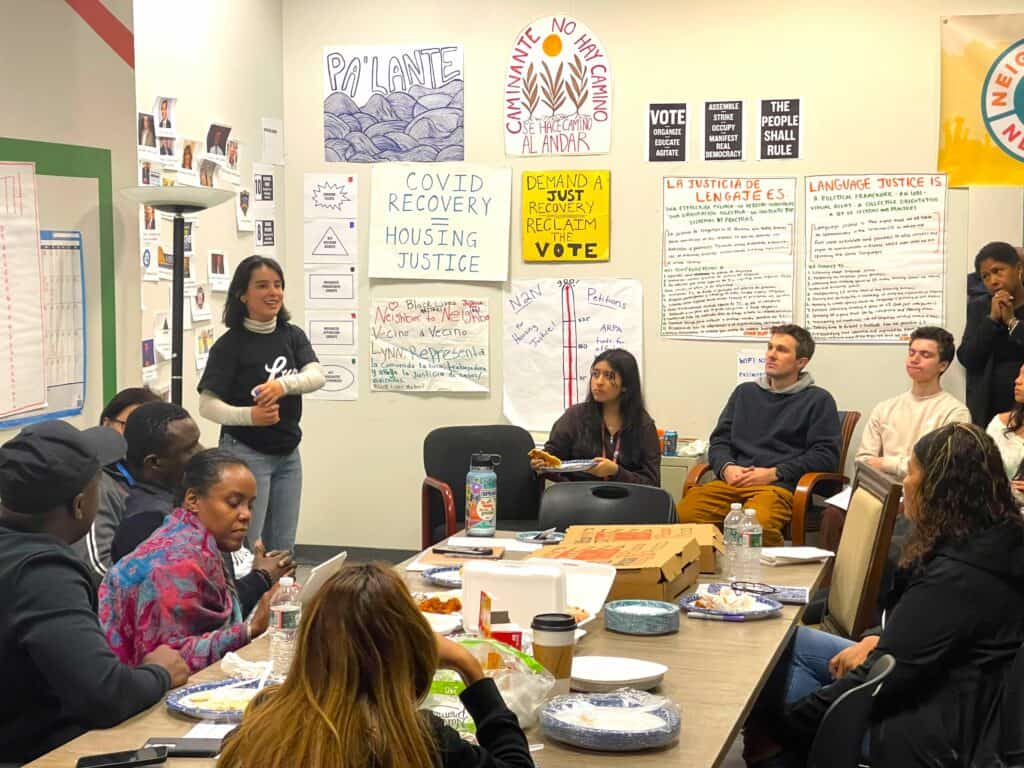
Fast-forward to 2023: I’m back in class at T4T. I volunteered, because I wanted to see how People’s Action Insititute and our training have evolved, especially since our merger with other groups to form a stronger national network in 2016.
Our training team - which includes Pamela Twiss, Nigel Tann, Adam Kruggel, Mehrdad Azemun, Christian Parra, Marta Popadiak, Amee Xiong and Stephen Roberson - were very generous when they allowed me to participate. Because trainers seek to create, above all else, an environment of trust with participants. Trust is a fragile thing which is essential to creating a new sense of possibility
My much-younger peers in the room also welcomed me, even if they knew I was an old-timer and now the director of People’s Action. Several of them challenged me in one-on-one conversations, in a generous form of the “agitation” technique those of us who were first trained by Shel know well.
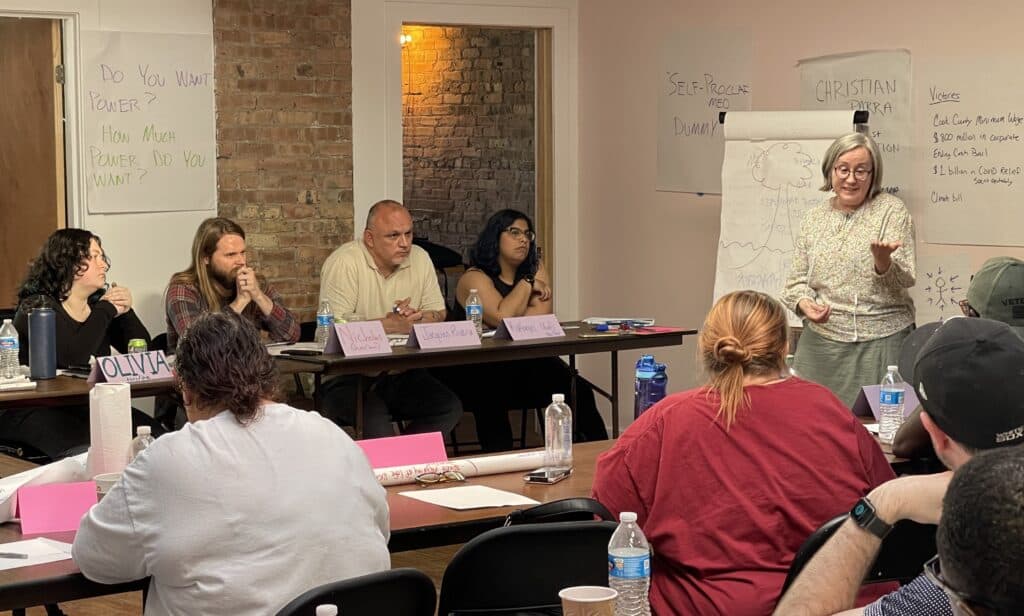
Most importantly, everything I experienced in this training was done in the right spirit: No BS, no transactional propositions, no self-serving judgements. Just honest, rigorous, deep and disciplined engagement, grounded in love and accountability, done in a way that allowed participants to engage and deal with our own challenges to building power.
What I observed was powerful, transformative and critically needed not just for new organizers but for all of us.
Over time, our approach to organizing has evolved, and must evolve, as we rise to meet new challenges.
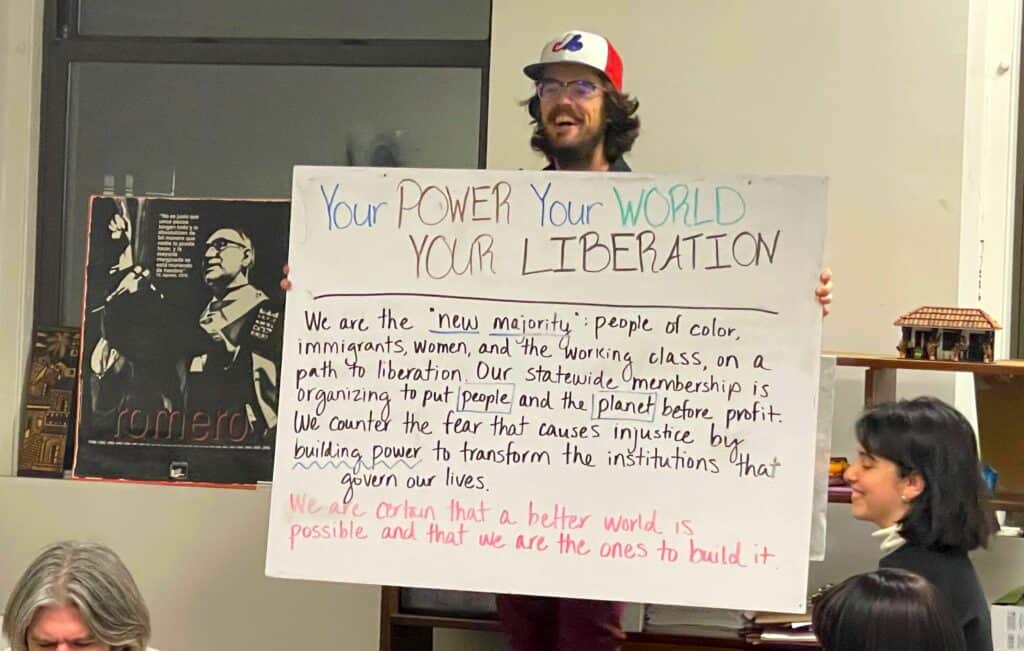
People’s Action has been fortunate to learn valuable lessons and techniques from those directly involved in the movements for Civil Rights, environmental, labor, LGBTQ+ and womens’ justice, and the struggle for Black liberation. Our training program incorporates all of this. We have also adopted new techniques, like online training and Deep Canvassing, whose proven effectiveness allows us to engage the challenges of our time with the scale and seriousness they demand.
I call training others to join the craft of organizing “sacred” because to me, it is. For every time we seek to create a transformational space, whether it is in a church basement, online, or in our wider society, we build, then build on, a foundation of trust. It’s our commitment and investment in training that allows us to establish this trust, create a sense of community, then combine it all with accountability. This is the combination that will help us build a bold and powerful movement for transformational change in this country.
After 25 years of doing this work, I am reminded of the importance of staying a humble student of the practice of organizing, and to allow it to cut away the callouses we build along the journey.
 Sulma Arias is executive director of the People's Action Institute and People's Action.
Sulma Arias is executive director of the People's Action Institute and People's Action.

